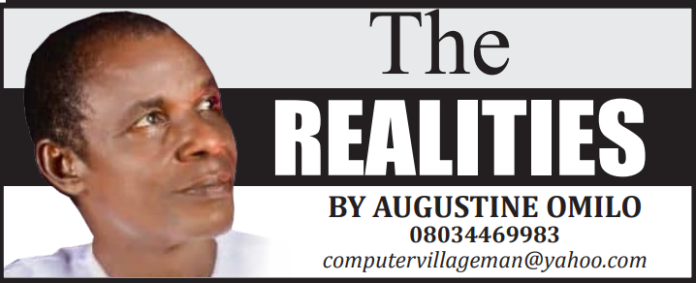One of the most trending political news item presently in Nigeria is the listing of the expectations from the in-coming new Chairman of the country’s Independent National Electoral Commission (INEC) by the ruling All Progressives Congress, APC and other opposition political parties. This comes on the heels of the expiration of Professor Mahmoud Yakubu’s chairmanship tenure in November, 2025.
The political parties, in their expectations, laid emphasis on credibility, neutrality, and commitment to democratic principles. Specifically, the PDP emphasised the need for the commission’s head to remain neutral and autonomous while the ADC warned that failure to conduct credible elections under the new leadership could pose a threat to the country’s democratic stability.
These are legitimate expectations, given the general discontent that had always been associated with previous elections. In most cases, no politician was sure of victory until the nation’s courts of law were invited to validate election outcomes. While those that are favoured by the electoral umpire’s opinion and sometimes those of the courts, those who are labeled losers hardly accept their positions as being fair and just.
Even those who have benefited from court verdicts in the past are quick to tag the judiciary as partial when they lose election cases in courts. They argue that INEC is impartial and that the judiciary is corrupt.
It is only credible electoral reforms that can guarantee credible elections in Nigeria. And the reforms also require absolute sincerity and political will power from the class of contestants and stakeholders for credible manifestations.
There should be some elements of Nigerian peculiarities built into the system. For example, the number of those electing political office holders must be pruned to a manageable size. Nigeria does not need more than 3,700,000 (three million, seven hundred thousand) votes to elect a president for the country. This represents a figure of 100,000 (one hundred thousand) voters from each state of the country and the FCT. This of course will entail delegate electoral representation from the grassroots till the final list is achieved.
The process will help eliminate voters who do not understand how to identify good leaders at certain levels of governance. There are no communities that do not know the best amongst them when it comes to making wise decisions.
Laying emphasis on majority votes from Nigerian adults made up mainly of men and women of ignorant dispositions is one of the greatest errors in leadership choices in the country. It is a simple logic; without sounding insulting, leaders that are chosen by the society’s nonentities can never perform better than the expectations of their electors.
Meanwhile, the issue of who appoints Chairman and commissioners for the Independent National electoral Commission, INEC must be addressed as quickly as possible. This power should not continue to reside with the president and his political party alone. In the same vein, State Independent Electoral Commissions must not be made to appear as an appendage of governors.
Frank D. Rossvelt was the longest served president of America (1932 – 1945), having served his third term completely and done about one year of his fourth before his death in 1945. His successor, Harry S. Truman did not stand on the ‘established protocol’ as he signed into law, a bill to constitutionally provide for a maximum of two terms for American presidents in 1951. It therefore requires a sincere patriotic sacrifice on the part of the present leaders of Nigeria to bring about reformative constitutional changes such as rotational presidency in the interest of justice, equity and fairness.
Without constitutional backing, the current gentle man’s agreements on which zone produees a governor or president at given times will remain deceitful concepts that can only be implemented in a one-party political system or within a political party that has powers to rotate within its member constituents.
In all of this, Nigerians and the orientation agencies must be prepared to listen to each other with a view to ensuring that the voters recognise and follow laid down rules during and after elections.
Efforts must be geared towards eliminating off-cycle elections that have continued to make electioneering activities very cumbersome in the country, except in cases where elected office holders resign from their positions or die in active service.


